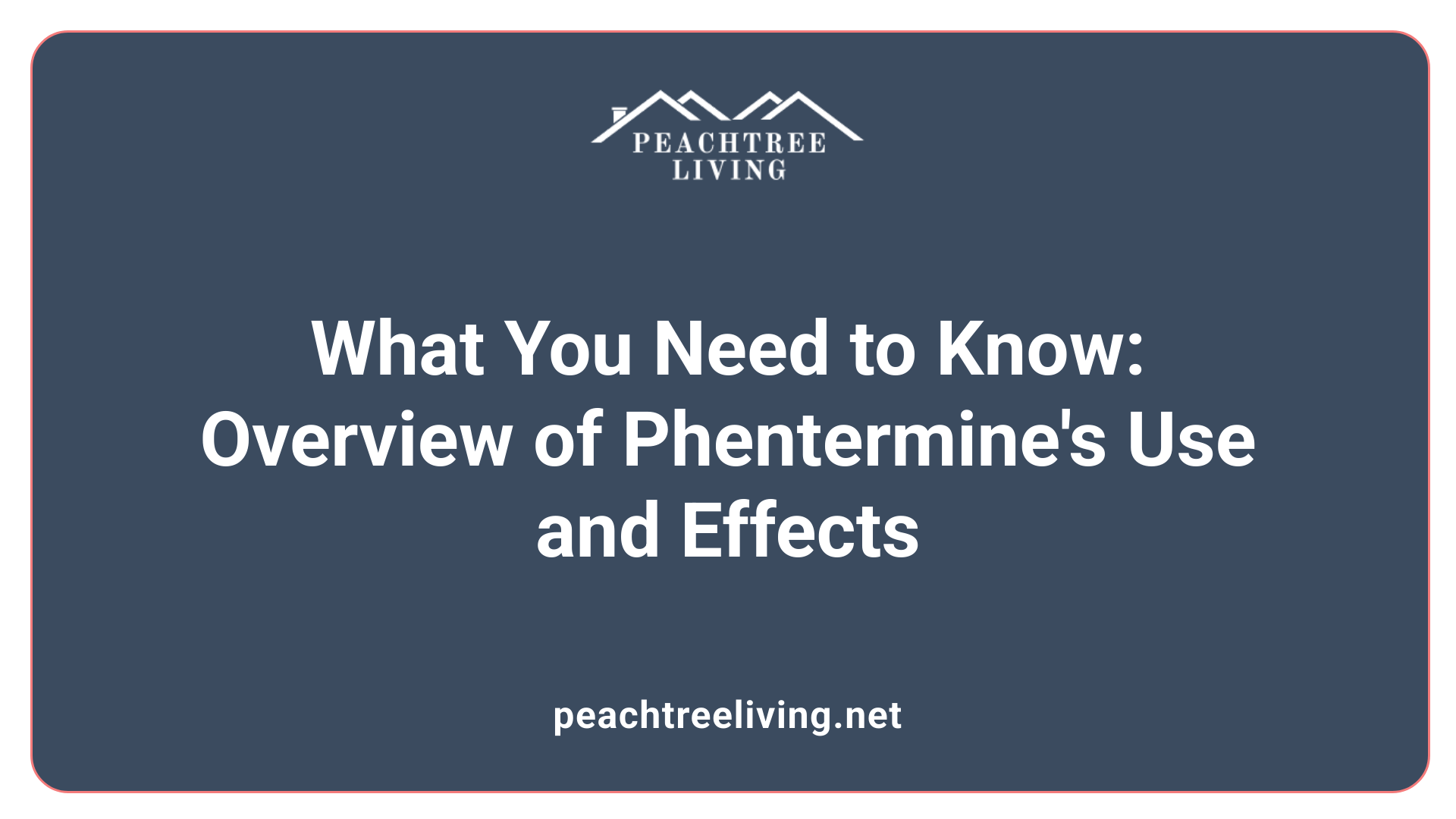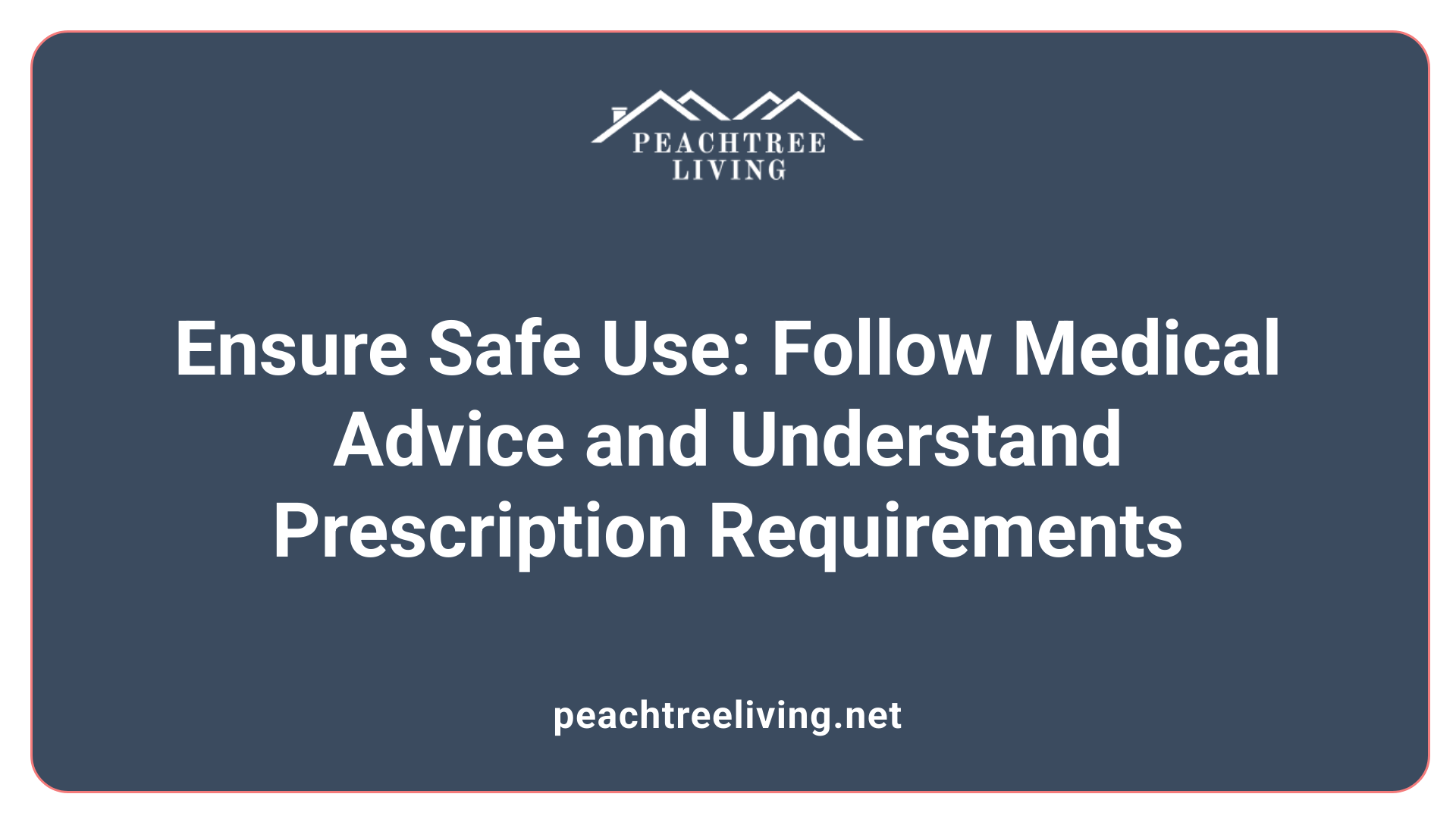A Crucial Guide for Patients Using Phentermine
Phentermine is a prescription medication widely used for weight loss, but it carries significant health considerations, particularly regarding alcohol consumption. Understanding the risks and safety precautions involved can make the difference between effective weight management and severe health complications.
Phentermine: An Overview of Its Use and Effects

What is phentermine?
Phentermine (marketed as Adipex-P) is a prescription medication used primarily for weight loss. It is also a part of the active ingredient formulation in Qsymia. As a stimulant chemically similar to amphetamine, phentermine is classified as a Schedule IV controlled substance, indicating its potential for misuse but also its medical utility.
How does it work for weight loss?
Phentermine suppresses appetite by affecting the central nervous system, helping individuals reduce calorie intake and lose weight. It is typically prescribed for short-term use in patients with obesity or those who need to achieve rapid weight loss under medical supervision. Regular medical checkups are advised to monitor for side effects and effectiveness.
Common side effects of phentermine
Patients may experience side effects like dizziness, headache, nausea, dry mouth, constipation, and mood changes. Due to its stimulant effects, phentermine can increase heart rate and blood pressure, and may cause cardiovascular issues such as chest pain or irregular heartbeat if misused. Gastrointestinal problems like stomach aches or nausea can also occur, especially if combined with other substances.
Can you have alcohol while taking phentermine?
It is generally advised to avoid alcohol while using phentermine. Alcohol can intensify side effects such as increased heart rate, blood pressure spikes, dizziness, and drowsiness. Since phentermine already impacts the central nervous system, adding alcohol can worsen mental and physical impairment, impair judgment, and raise the risk of cardiovascular problems.
Patients should wait about 12 hours after taking phentermine before consuming alcohol, as the drug can stay in their system for up to 72 hours. Combining these substances increases risks such as misjudgment, dizziness, gastrointestinal upset, and severe cardiovascular events like stroke or heart failure.
Because of these risks, the safest approach is to avoid alcohol entirely during treatment. Always consult your healthcare professional before drinking alcohol while on phentermine. This helps ensure that your individual health circumstances are considered, preventing adverse reactions and safeguarding your health.
Risks of Mixing Phentermine and Alcohol

What are the risks of mixing phentermine with alcohol?
Combining phentermine, a stimulant weight-loss medication, with alcohol can lead to serious health complications. Since phentermine increases heart rate and blood pressure, mixing it with alcohol, which acts as a depressant, can disrupt the body's normal functions. This dangerous interaction may cause cardiovascular issues such as rapid heartbeat, elevated blood pressure, chest pain, and an increased risk of stroke or heart attack.
In addition to cardiovascular concerns, alcohol can impair mental functions including judgment, balance, and decision-making. When combined with phentermine, these effects can be intensified, making activities like driving or operating machinery particularly hazardous.
Alcohol also worsens common side effects of phentermine such as dizziness, nausea, dehydration, and dry mouth. It can irritate the stomach lining, leading to gastrointestinal problems like nausea and vomiting, especially when combined with the stimulant. Moreover, drinking alcohol while on phentermine raises the risk of liver toxicity, seizures, and mental health disturbances like mood swings or anxiety.
Given that phentermine remains active in the body for up to 72 hours, even moderate alcohol intake during this period can result in harmful reactions. The Mayo Clinic advises avoiding alcohol entirely during treatment to prevent these risks. Patients eager to drink should consult their healthcare provider about the safest timing and potential effects.
In summary, mixing these substances increases the likelihood of severe side effects and health risks, particularly affecting the heart and mental state. Always seek professional medical advice before considering alcohol while on phentermine.
Physiological and psychological side effects of combining substances
What side effects are associated with mixing phentermine and alcohol?
Combining phentermine with alcohol can lead to a variety of serious health issues. Since both substances affect the central nervous system, their interaction often amplifies adverse effects.
One of the most common problems is increased dizziness, nausea, and a heightened risk of dehydration. Alcohol can irritate the stomach lining, causing gastrointestinal discomfort such as nausea and stomach aches, while phentermine's stimulant properties can exacerbate these symptoms. This combination may also result in dry mouth and constipation, which are typical side effects of phentermine alone, but become more pronounced when alcohol is involved.
On the psychological front, mixing these substances can cause mood swings, including feelings of depression or anxiety. Alcohol’s depressant effects can intensify the mood-altering side effects of phentermine, making emotional stability more difficult.
The central nervous system effects include impaired judgment, poor coordination, and difficulties in concentration.
In terms of physical health, the combined use of phentermine and alcohol raises the risk of cardiovascular issues such as increased heart rate, elevated blood pressure, irregular heartbeat, and even heart failure in severe cases. These risks are especially dangerous for individuals with pre-existing heart conditions.
Overall, the interaction between phentermine and alcohol significantly increases the chance of adverse effects, including dehydration, gastrointestinal distress, mood disorders, and cardiovascular complications. Patients should avoid mixing these substances and consult healthcare providers for guidance.
| Side Effects | Impact | Additional Notes |
|---|---|---|
| Dizziness & Impaired Coordination | Nervous system | Increased risk of falls and accidents |
| Nausea & Stomach Ache | Gastrointestinal | Dehydration & electrolyte imbalance |
| Mood Swings | Psychological | Risk of depression or anxiety mood states |
| Elevated Heart Rate | Cardiovascular | Can lead to heart strain or failure |
| Headache & Confusion | Nervous system | Critical to monitor during treatment |
Given the complex risks, it is strongly advised to avoid alcohol entirely during phentermine therapy, or at least consult a healthcare professional for safety and proper management.
Safety precautions and best practices

What is the recommended waiting period to drink after taking phentermine?
Patients are advised to wait at least 12 hours after taking phentermine before consuming alcohol. Since phentermine can stay in the system for up to 72 hours, even moderate alcohol intake during this period can significantly increase the risk of adverse side effects.
How should I responsibly consume alcohol while on medication?
Given the interactions between phentermine and alcohol, it is safer to avoid alcohol altogether during treatment. If you choose to drink, do so minimally and be aware of how your body reacts. Always prioritize your health and discuss alcohol use openly with your healthcare provider.
What activities should be avoided during this period?
Activities that require mental alertness and physical coordination, such as driving, operating machinery, or engaging in strenuous exercise, should be avoided until you are sure of how phentermine affects you. Alcohol can impair judgment and balance, increasing the risk of accidents.
Is it safe to drink alcohol while taking weight loss medications?
Using alcohol with weight loss medications like phentermine is generally unsafe. Combining these substances can intensify side effects such as dizziness, depression, cardiovascular stress, and gastrointestinal discomfort. It may also undermine your weight loss goals by prompting poor food choices and adding extra calories. The safest approach is to abstain from alcohol during your treatment to prevent health risks and support effective weight management.
Always consult your healthcare professional for personalized advice, especially if you have underlying health conditions. Monitoring your response and avoiding alcohol can help you achieve your weight loss objectives safely.
Effects on Heart and Circulatory System

How does phentermine affect heart health?
Phentermine is a stimulant medication that works by suppressing appetite. Because it stimulates the central nervous system, it can also increase heart rate and blood pressure. These effects are usually mild for healthy individuals but can become significant in some cases. Long-term use or high doses may stress the cardiovascular system, risking arrhythmias, elevated blood pressure, or even more severe heart conditions.
How does alcohol influence cardiovascular health?
Alcohol consumption has a complex relationship with the heart. Moderate drinking might offer some protective benefits, but excessive alcohol intake can lead to increased blood pressure, irregular heartbeat, and cardiomyopathy. Alcohol can also cause dehydration and inflammation, which can negatively impact overall heart health.
What is the combined impact of phentermine and alcohol on blood pressure?
Using both substances together can lead to dangerous spikes in blood pressure and heart rate. Phentermine alone raises these vitals as a stimulant, and alcohol can further impair the body's ability to regulate blood pressure. This combination can cause significant strain on the heart, sometimes resulting in stroke, heart attack, or heart failure. The dehydration caused by alcohol worsens these risks, as it reduces blood volume and increases the likelihood of cardiovascular complications.
| Substance | Effect on Heart | Additional Notes |
|---|---|---|
| Phentermine | Raises heart rate and blood pressure | Can cause arrhythmias, increased cardiovascular risk |
| Alcohol | Can increase blood pressure, cause dehydration | Excessive consumption linked to heart disease |
| Combined Use | Elevated risk of hypertension, irregular heartbeat, heart strain | Significantly increases the danger of severe cardiovascular events |
Regular monitoring by healthcare providers and avoiding alcohol while on phentermine can help reduce these serious health risks. Patients should always discuss their alcohol use and heart health status with their doctor when prescribed phentermine.
Legal and Medical Guidelines for Using Phentermine Safely

Is it safe to have alcohol while taking phentermine?
It is generally recommended to avoid alcohol while using phentermine. This medication, used for weight loss and available only with a prescription, is a stimulant that can increase heart rate, blood pressure, and cause other side effects such as dizziness and nausea. When alcohol is introduced, these effects can become more severe.
Alcohol can interfere with how phentermine works and may lead to harmful interactions. For example, combining the two can heighten cardiovascular risks—including irregular heartbeat, chest pain, and even potential heart failure. Alcohol also impairs the brain's communication pathways, which can worsen side effects like impaired judgment, dizziness, and drowsiness.
Moreover, alcohol can negate some of the weight-loss benefits of phentermine. Since alcohol contains empty calories, drinking while on medication can promote poor food choices and hinder progress toward weight loss goals.
To ensure safety, it is advised to wait at least 12 hours after taking phentermine before consuming alcohol. Since phentermine can stay in your system for up to 72 hours, even moderate drinking may cause adverse reactions. Always discuss your alcohol intake with your healthcare provider, especially if you are on this medication.
About prescription requirements and medical supervision
Phentermine is a controlled substance classified as Schedule IV, which means it requires a doctor’s prescription. This is necessary because of its stimulant properties and potential side effects. Proper medical supervision helps monitor for adverse responses, adjust dosage if needed, and ensure that the medication is safe for the individual.
Regular checkups are essential while taking phentermine. Healthcare providers may conduct blood pressure checks, monitor for symptoms of misuse, and evaluate any side effects. Doctors also advise against the use of phentermine during pregnancy, as it poses risks to the developing fetus.
Monitoring and checkups during treatment
Patients on phentermine should keep up with scheduled medical visits, especially during the first few weeks of treatment. These visits allow healthcare professionals to review progress, check for side effects like mood changes, dizziness, or gastrointestinal issues, and provide guidance on lifestyle adjustments.
During treatment, users should be vigilant about any severe side effects such as chest pain, irregular heartbeat, or significant mood alterations. Immediate medical attention is necessary if symptoms like difficulty breathing, severe dizziness, or persistent nausea occur.
In addition, doctors recommend avoiding activities that require full alertness until the individual understands how the medication affects them. This is critical because both phentermine and alcohol can impair judgment and coordination.
| Aspect | Recommendations | Additional Notes |
|---|---|---|
| Prescription | Must be prescribed by a healthcare provider | Ensures correct dosing and monitoring |
| Alcohol | Avoid or limit; wait at least 12 hours if needed | Due to risk of severe side effects |
| Monitoring | Regular checkups scheduled | To assess effectiveness and side effects |
| Precautions | Do not use during pregnancy | Risks to fetus |
Adhering to these medical guidelines helps maximize the benefits of phentermine while minimizing risks associated with alcohol consumption and side effects.
Conclusion: Making Informed Health Decisions
What are the main safety considerations when using phentermine?
Using phentermine for weight loss involves understanding its potential side effects and risks, especially when combining it with other substances like alcohol. Phentermine is a stimulant similar to amphetamine, which can increase heart rate, blood pressure, and cause cardiovascular issues such as chest pain or even heart failure. It may also lead to nervous system side effects, including dizziness, drowsiness, and mood changes.
Why should alcohol be avoided or limited while on phentermine?
Alcohol can significantly worsen many of phentermine's side effects. It may interfere with the medication's effectiveness for weight loss and can increase the likelihood of gastrointestinal problems, such as nausea and stomach aches. More critically, alcohol can intensify cardiovascular risks, leading to increased heart rate, blood pressure fluctuations, and risk of severe events like stroke or arrhythmia.
How important is it to seek medical advice?
Always second healthcare professional before drinking alcohol during phentermine treatment. The safest approach is to avoid alcohol altogether because phentermine can remain in your system for up to 72 hours, and even moderate drinking can cause adverse reactions. Your doctor can provide personalized guidance based on your overall health status and other medications.
Prioritizing health and safety
Staying informed and cautious about combining medications and substances is vital for your health. Regular medical checkups during treatment can help monitor any side effects. Remember, making well-informed decisions and following medical advice ensures your safety and the effectiveness of your weight loss plan.
| Aspect | Risks | Recommendations |
|---|---|---|
| Cardiac | Increased heart rate, hypertension, risk of heart failure | Avoid alcohol; monitor cardiovascular health |
| Nervous system | Dizziness, drowsiness, mood swings | Limit alcohol; watch for neurological symptoms |
| Gastrointestinal | Nausea, vomiting, stomach aches | Discuss alcohol intake with your doctor |
| Abuse potential | Dependence and overdose | Follow medical guidance strictly |
Understanding these points helps you make safer choices in your weight loss journey.
Prioritize Your Health and Consult Your Healthcare Provider
Given the significant health risks associated with combining phentermine and alcohol, it is crucial for patients to seek medical advice before consuming any alcoholic beverages during treatment. Abstaining from alcohol can help ensure the medication’s effectiveness and reduce the likelihood of dangerous side effects.
References
- Should You Mix Alcohol and Phentermine (Adipex-P)? Probably Not
- What Happens When You Mix Phentermine And Alcohol?
- Phentermine and Alcohol/Food Interactions - Drugs.com
- What happens when you mix phentermine and alcohol? - SingleCare
- Phentermine (oral route) - Side effects & dosage - Mayo Clinic
- Phentermine (oral route) - Side effects & dosage - Mayo Clinic
- Phentermine and topiramate (oral route) - Side effects & dosage
- Phentermine for weight loss - Mayo Clinic
- Phentermine Side Effects You Should Know - BuzzRx
- How Alcohol Affects Dieting | The Recovery Village Columbus

